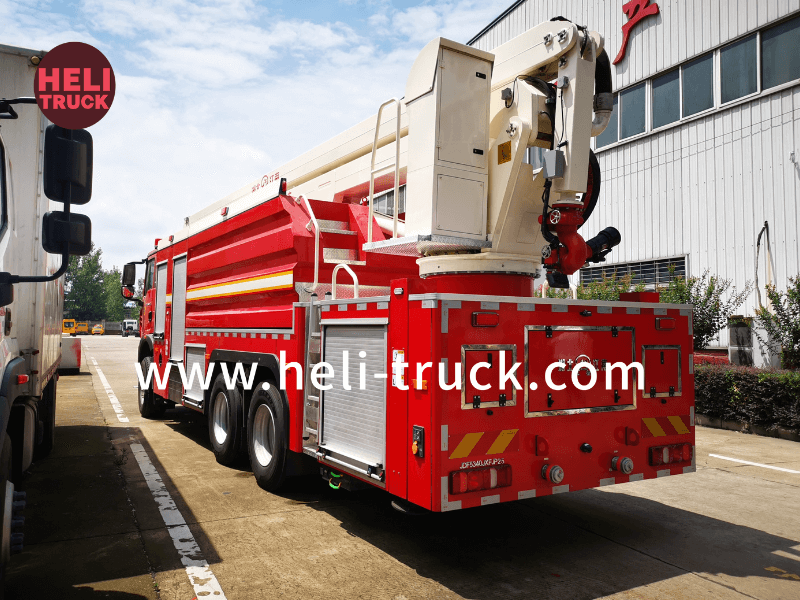Optimizing Garbage Truck Fleet Management for Efficient Waste Collection

Introduction
In modern cities and urban environments, efficient waste management is crucial to maintaining cleanliness, public health, and environmental sustainability. Garbage trucks play a vital role in this process by collecting and transporting waste from residential, commercial, and industrial areas to disposal sites. Managing a fleet of garbage trucks is a complex task that involves planning routes, scheduling pickups, monitoring vehicle performance, and ensuring compliance with regulations. In this article, we will explore the importance of garbage truck fleet management and discuss strategies for optimizing operations to improve efficiency and reduce costs.
Importance of Garbage Truck Fleet Management
Garbage truck fleet management is essential for ensuring that waste collection services are carried out effectively and efficiently. By properly managing a fleet of garbage trucks, waste management companies can achieve the following benefits:
1. Improved operational efficiency: Effective fleet management allows companies to optimize routes, schedules, and resources, leading to faster and more efficient waste collection. By minimizing travel time and maximizing vehicle capacity utilization, companies can reduce costs and improve overall operational performance.
2. Enhanced customer service: Timely and reliable waste collection services are essential for maintaining customer satisfaction and public trust. By efficiently managing garbage truck fleets, companies can ensure that pickups are scheduled and completed on time, reducing the risk of missed collections and customer complaints.
3. Regulatory compliance: Waste management companies are subject to various regulations and guidelines governing waste collection and disposal. By implementing effective fleet management practices, companies can ensure compliance with environmental standards, safety regulations, and other legal requirements, minimizing the risk of fines and penalties.
4. Environmental sustainability: Efficient garbage truck fleet management can help reduce fuel consumption, emissions, and environmental impact associated with waste collection operations. By optimizing routes and vehicle usage, companies can minimize carbon footprint and contribute to a cleaner and greener environment.
Strategies for Optimizing Garbage Truck Fleet Management
To improve the efficiency and effectiveness of garbage truck fleet management, waste management companies can implement the following strategies:
1. Route optimization: One of the key challenges in garbage truck fleet management is planning efficient routes that minimize travel time and distance while maximizing the number of pickups. By using route optimization software and algorithms, companies can create optimized routes based on factors such as location, traffic conditions, waste volume, and disposal sites. This can help reduce fuel consumption, vehicle wear and tear, and overall operational costs.
2. Vehicle tracking and monitoring: Installing GPS tracking devices and telematics systems in garbage trucks can provide real-time information on vehicle location, speed, fuel consumption, and performance. By monitoring aerial platform truck and analyzing driver behavior, companies can identify opportunities for improving efficiency, reducing idle time, and preventing unauthorized vehicle use.
3. Maintenance scheduling: Regular maintenance and servicing are essential for ensuring the reliability and longevity of garbage trucks. By implementing a proactive maintenance schedule based on vehicle usage, mileage, and operating conditions, companies can prevent breakdowns, extend vehicle lifespan, and minimize repair costs. Automated maintenance tracking systems can help streamline the maintenance process and ensure that all vehicles are serviced on time.

4. Driver training and performance management: Well-trained and competent drivers are essential for safe and efficient waste collection operations. By providing ongoing training on driving techniques, safety procedures, and customer service skills, companies can improve driver performance, reduce accidents, and enhance overall service quality. Implementing driver performance monitoring systems can help identify areas for improvement and reward high-performing drivers.
5. Data analysis and reporting: Collecting and analyzing data on fleet operations, vehicle performance, and waste collection metrics can provide valuable insights for optimizing garbage truck fleet management. By generating reports on key performance indicators such as route efficiency, fuel consumption, maintenance costs, and customer satisfaction, companies can identify trends, patterns, and opportunities for improvement. Data-driven decision-making can help drive continuous improvement and innovation in waste management operations.
Conclusion
Effective garbage truck fleet management is essential for optimizing waste collection operations, reducing costs, and improving overall efficiency. By implementing strategies such as route optimization, vehicle tracking, maintenance scheduling, driver training, and data analysis, waste management companies can enhance operational performance, customer service, and environmental sustainability. Investing in modern technology, automation, and best practices can help companies stay competitive, compliant, and responsive to evolving waste management challenges. By prioritizing efficient fleet management, waste management companies can achieve greater operational efficiency, cost savings, and environmental stewardship in their waste collection operations.
